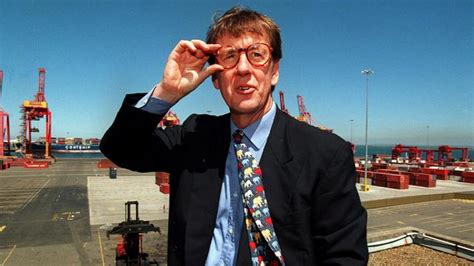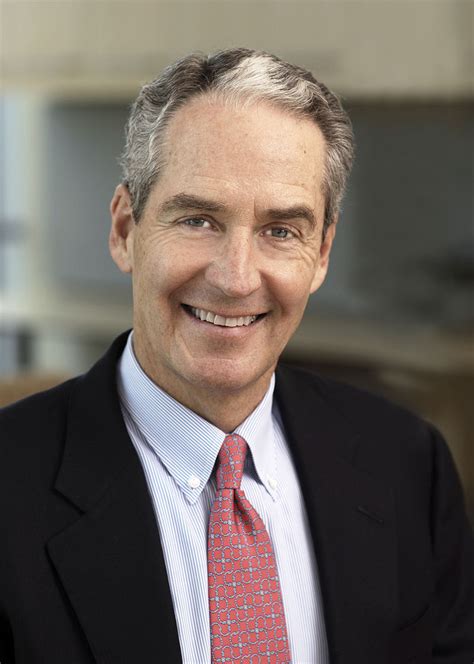A Quote by William J. Bernstein
You have to understand your own psychology. You have to understand that human beings weren't really designed to invest. We have all these emotions that are appropriate responses if you're being chased by a tiger, but they're terrible responses if you've got a 30-year time horizon to think about investment or when you're trying to manage investment over 30 years.
Related Quotes
If you're going to buy something which compounds for 30 years at 15% per annum and you pay one 35% tax at the very end, the way that works out is that after taxes, you keep 13.3% per annum. In contrast, if you bought the same investment, but had to pay taxes every year of 35% out of the 15% that you earned, then your return would be 15% minus 35% of 15%-or only 9.75% per year compounded. So the difference there is over 3.5%. And what 3.5% does to the numbers over long holding periods like 30 years is truly eye-opening.
We have made a huge amount of progress over the last 50 years by enabling trade, by enabling kind of collaboration and learning. And actually, in fact, when you look at your average 30-year-old today, they're much better off than a 30-year-old 20 years ago, 30 years ago, because of progress in technology and health care and all the rest of this.
We invest in things like the future, like our children, like education. In other words, we invest in things that we understand we will not see an immediate return of investment but everybody knows it will have a positive impact and you can easily measure it over the course of time. Your why is exactly the same thing.
It is now generally accepted that the roots of our ethics lie in patterns of behavior that evolved among our pre-human ancestors, the social mammals and that we retain within our biological nature elements of these evolved responses. We have learned considerably more about this responses, and we are beginning to to understand how they interact with our capacity to reason.
I was on Twitter and I saw that I had over 1,000 responses and I was like "OK, something happened," so I opened it and it was like "Charice on Glee!" I didn't get an e-mail from the show so I wasn't tweeting at that time. I just watched my fans tweet. And then after about 30 minutes the show e-mailed me and said congratulations.
Unlike return, however, risk is no more quantifiable at the end of an investment that it was at its beginning. Risk simply cannot be described by a single number. Intuitively we understand that risk varies from investment to investment: a government bond is not as risky as the stock of a high-technology company. But investments do not provide information about their risks the way food packages provide nutritional data.
I would then say that there are two kinds of feeling. The first is to feel in the sense of concentrating your emotions on something immediately available for your understanding: you make your understanding out of the emotions you have about it. The second is to feel in the sense of being affected without trying to understand: something is felt, you do not know what, and it is more important to feel it than to try to understand it, since once you try to understand it you no longer feel it.
The Christian is free from all other human beings. He does not have to live over against others, controlled by their actions and responses. Rather, he lives according to Christ's commands. This is Christian freedom. It is a freedom unknown by others. It is not just when others do the things that we like that we act properly toward them; we are free to do good even when they don't because our actions are not dependent on their responses. It is the Lord Christ when we serve!

































